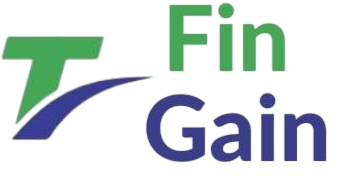How to Win at Job Interview Tips

Mastering the Art of Job Interview tips
Job interviews can be daunting, but with the right preparation and mindset, you can turn them into opportunities to showcase your strengths and secure the job you desire. Here’s a comprehensive guide to help you ace your next interview.
Convey to the Recruiter You Are the Best Fit for the Job
To convince the recruiter that you are the best fit, tailor your responses to highlight how your skills, experiences, and values align with the job requirements and the company’s culture. Use specific examples to demonstrate your achievements and how they relate to the role. For instance, if the job requires project management skills, discuss a successful project you led, emphasizing the outcomes and your role in achieving them.
Use Words Carefully: Avoid Accents or Memorized Responses
Speak naturally and avoid using accents or memorized responses. Authenticity is key. Recruiters can easily spot rehearsed answers, so focus on being genuine and articulate. Use clear and concise language to convey your thoughts effectively. Instead of memorizing responses, prepare key points you want to cover and practice speaking about them in a conversational manner.
What Not to Ask
Avoid asking questions about salary, benefits, or vacation time in the initial interview. Instead, focus on questions that show your interest in the role and the company, such as inquiries about the team, company culture, or growth opportunities. For example, you could ask, “Can you tell me more about the team I’ll be working with?” or “What are the key priorities for the department in the next six months?”
What You Don’t Say Also Matters
Non-verbal communication is crucial. Maintain good eye contact, sit up straight, and use positive body language. Avoid negative behaviours like fidgeting, crossing your arms, or looking at your phone. Your demeanour should reflect confidence and enthusiasm. Remember, your body language can convey as much as your words, so be mindful of how you present yourself.
Your Resume and Social Media
Ensure your resume is up-to-date and tailored to the job you are applying for. Highlight relevant experiences and skills. Additionally, clean up your social media profiles to present a professional image. Recruiters often check candidates’ online presence. Make sure your LinkedIn profile is complete and reflects your resume. Remove any unprofessional content from your social media accounts.
Research the Company and Job Role
Thoroughly research the company and the job role. Understand the company’s mission, values, and recent achievements. This knowledge will help you tailor your responses and show that you are genuinely interested in the position. Look into the company’s products, services, and market position. Read recent news articles and press releases to stay informed about their latest developments.
Practice the Presentation
Practice answering common interview questions and presenting your experiences confidently. Consider conducting mock interviews with a friend or using online resources. The more you practice, the more comfortable you will be during the actual interview. Record yourself answering questions and review the recordings to identify areas for improvement.
Common Interview Questions and How to Answer Them
Tell Me About Yourself
Intent: The interviewer wants to get a brief overview of your background and how it relates to the job.
Response: Start with a concise summary of your professional background, highlight key achievements, and explain why you are excited about this opportunity.
Example: “I have over five years of experience in marketing, specializing in digital campaigns. At my last job, I increased our social media engagement by 30%. I’m excited about this role because I admire your innovative approach to marketing and believe my skills can contribute to your team.”
What Are Your Strengths and Weaknesses?
Intent: The interviewer wants to assess your self-awareness and honesty.
Response: Highlight a strength that is relevant to the job and a weakness that you are actively working to improve.
Example: “One of my strengths is my attention to detail, which has helped me successfully manage multiple projects. A weakness I’m working on is public speaking. I’ve been taking courses to improve my confidence in this area.”
Why Are You Leaving or Why Did You Leave Your Previous Job?
Intent: The interviewer wants to understand your motivations and ensure you are leaving on good terms.
Response: Be honest but positive. Focus on what you are looking for in a new opportunity rather than criticizing your previous employer.
Example: “I’m looking for new challenges and opportunities to grow. While I’ve enjoyed my time at my current job, I’m excited about the potential to work with a dynamic team like yours and contribute to innovative projects.”
What Are Your Salary Expectations?
Intent: The interviewer wants to know if your expectations align with the company’s budget.
Response: Provide a range based on your research and be open to negotiation.
Example: “Based on my research and experience, I’m looking for a salary in the range of $60,000 to $70,000. However, I’m open to discussing this further based on the overall compensation package.”
Where Do You See Yourself in the Next 5 Years?
Intent: The interviewer wants to gauge your long-term interest in the company.
Response: Show ambition but align your goals with the company’s growth.
Example: “In the next five years, I see myself taking on more leadership responsibilities and contributing to strategic initiatives. I’m particularly interested in growing within a company that values innovation and professional development.”
Tell Us About How You Handle a Challenge or Tough Decision
Intent: The interviewer wants to assess your problem-solving skills and resilience.
Response: Provide a specific example of a challenge you faced, how you approached it, and the outcome.
Example: “In my previous role, we faced a significant budget cut. I led a team to reallocate resources and prioritize key projects. As a result, we still met our targets and even identified new efficiencies.”
Do You Have Any Questions for Us?
Intent: The interviewer wants to see your interest in the role and the company.
Response: Ask thoughtful questions that show your enthusiasm and curiosity.
Example: “Can you tell me more about the team I’ll be working with? What are the key priorities for the department in the next six months?”
Frequently Asked Questions (FAQs)
How early should I arrive for an interview?
Answer: Aim to arrive 10-15 minutes early. This shows punctuality and gives you time to settle in and compose yourself before the interview starts.
What should I wear to an interview?
Answer: Dress appropriately for the company culture. When in doubt, opt for business professional attire. It’s better to be slightly overdressed than underdressed.
How can I calm my nerves before an interview?
Answer: Practice deep breathing exercises, visualize a successful interview, and remind yourself of your qualifications and preparation. Confidence comes from being well-prepared.
Should I bring anything to the interview?
Answer: Bring multiple copies of your resume, a list of references, a notepad, and a pen. Having these items shows you are prepared and organized.
How do I follow up after an interview?
Answer: Send a thank-you email within 24 hours of the interview. Express your appreciation for the opportunity, reiterate your interest in the position, and briefly mention a key point from the interview.
By following these tips and preparing thoroughly, you can approach your next job interview with confidence and increase your chances of success. Good luck! 🍀
For more tips on preparing for job interviews, check out this guide on SEO writing and this article on external linking best practices.
The CFPB: 5 Ways It Protects Consumers and 3 Controversies That Challenge Its Power


Hello
[…] 10 Job Interview Tips and Proven Strategies to Avoid Common Pitfalls […]
[…] 10 Job Interview Tips and Proven Strategies to Avoid Common Pitfalls […]
[…] 10 Job Interview Tips and Proven Strategies to Avoid Common Pitfalls […]
[…] 10 Job Interview Tips and Proven Strategies to Avoid Common Pitfalls […]
[…] 10 Job Interview Tips and Proven Strategies to Avoid Common Pitfalls […]